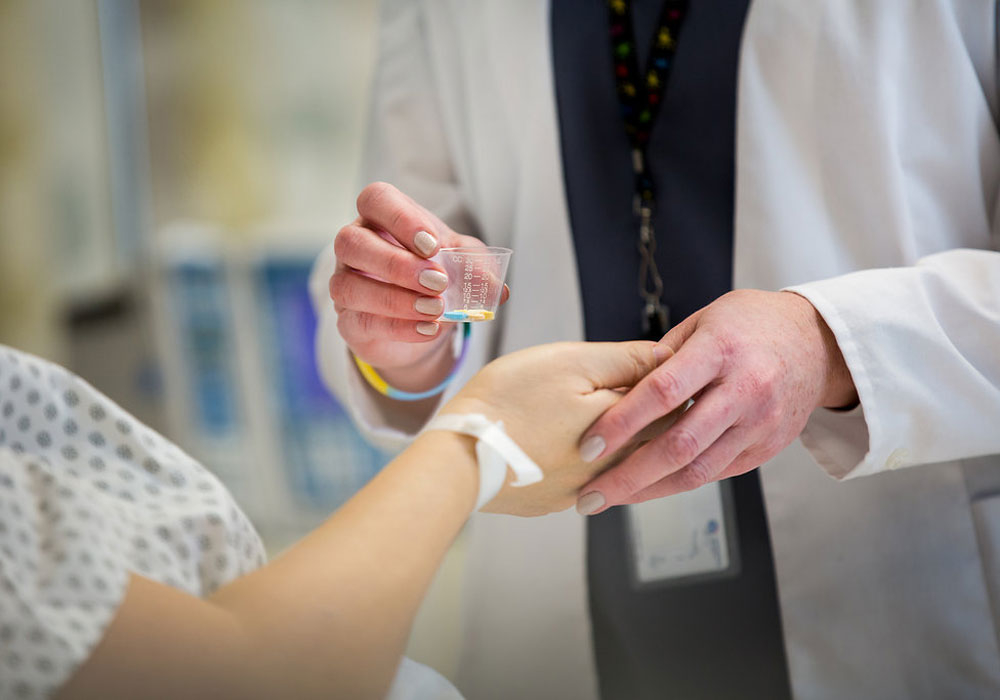For the past two years, opioids have drawn the attention of researchers, members of Congress, the president, and the general public. With stories of drug abuse and heartbreaking tragedy, the problem with opioids in America has been dubbed an epidemic. Federal funding has accompanied the call to combat overdoses and adjust treatment plans to change the way addiction is dealt with from a medical perspective.
In a recent interview with the National Cancer Institute (NCI), ONS member Judith Paice, PhD, RN, director of the Cancer Pain Program at Northwestern University Feinberg School of Medicine in Chicago, IL, catalogued the various ways opioid and non-opioid interventions have been used to treat pain in patients with cancer.
“Oncology care providers rely heavily on opioids, but we never rely only on opioids,” Paice said. “We’re always using multiple therapies that work in different ways. That includes other pharmacologic (drug) therapy, and, as much as possible, nonpharmacologic approaches such as physical therapy, occupational therapy, orthotics, cognitive behavioral therapy, and massage and other integrative therapies.”
For oncology nurses, pain management is at the top of the list for helping patients with symptoms associated with cancer. But for legislators, all too often patients with cancer are lumped together with those who abuse prescription medications. This could potentially make it difficult to obtain severe pain management medication for patients with cancer.
Paice provided insight into the current situation, and her perspective gave a better understanding of the patients she works with and the difficulties that arise from broad legislative.
“Recently released results of a study by the American Cancer Society Cancer Action Network and the Patient Quality of Life Coalition show that one-third or more of patients and survivors are having difficulty getting access to their prescribed opioid medications,” Paice said. “The proportion of people experiencing difficulties has increased markedly since 2016. From a policy perspective, one of the major challenges we’re facing right now is the need to ensure that patients with cancer get the medications they need, and without significant delays.”






